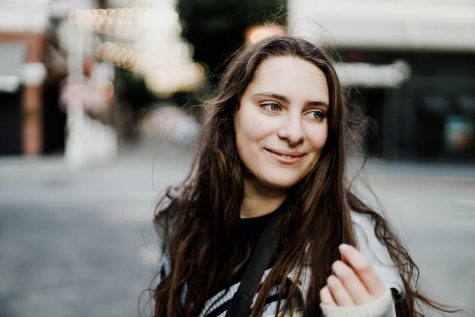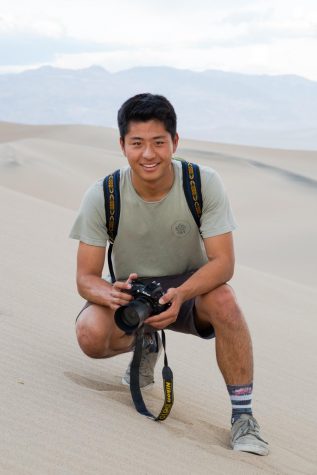

This article is part of a series that seeks to explain and examine aspects of how issues around the Israeli-Palestinian conflict impact students, faculty, the university administration and academic programs. It is the work of over 80 interviews and numerous conversations that took place over a year. Taken together, these articles are meant to provide an overview of certain aspects of these tensions on SF State’s campus — and are not comprehensive.
December 1, 2020
When President Lynn Mahoney began her time at SF State in 2019, she had high hopes that the Jewish and Muslim student life coordinators within the Division of Equity & Community Inclusion in Student Affairs would ease tensions she knew existed between Jewish and Palestinian students and campus organizations.
The Division of Equity & Community Inclusion was created by the former university administration in 2017 and the coordinator positions were first posted online in December 2018.
“We have that diversity. The focus is going to be on bringing folks together,” said Mahoney in an interview with the Jewish Weekly News of Northern California last October. “I look forward to when the Muslim student coordinator and the Jewish student coordinator host an event together.”
Since the university began searching for two student life coordinators in December 2018, neither position has remained filled for much longer than a semester. The only time both positions were filled simultaneously was in November 2019, an overlap lasting about a month. Both positions are currently empty.
Students have questioned the effectiveness of Mahoney’s efforts to rectify decades of conflict but recognize that her administration has inherited a problem that stems from years of mismanagement by previous administrations. Mahoney’s introduction to the university follows the retirement of her predecessor, former President Leslie Wong. A large number of administrators in charge of overseeing and hiring the coordinators changed following his leave.
Mahoney said in August that she wants the campus to be a model for how universities can discuss difficult geopolitical issues, but stated in a September interview that she realizes there will be irreconcilable differences between Palestinian and Jewish students and organizations, and that she can’t speak for them being open to conversation.
Mahoney said in September that she hopes these positions will be filled by the end of the semester. In late November, Frederick Smith, director of the Division of Equity & Community Inclusion, wrote in an email that this timeline is accurate and likely. Smith said that the division is continuing to consult with HR for an internal candidate process. If an internal search and hire is unsuccessful, they will begin an external search for the positions.
After a state lawsuit was settled between Jewish students and the university, certain agreements made in the settlement involved the coordinator for Jewish student life. In the settlement, the university agreed to consult with the Jewish Studies Department when hiring the coordinator, to try filling the position within 90 days of the settlement agreement and to fill and fund the position for at least 48 months.
Smith said SF Hillel students and staff were highly involved in meeting candidates and the hiring process, as well as the overall creation of both positions. The Muslim and Jewish coordinator positions came to fruition after discussions between Luoluo Hong, former vice president of Student Affairs and Enrollment, and Sasha Presley, former student president of SF Hillel, and in consultation with the former executive director of SF Hillel.
It’s a way for us to be a part of this campus … having our voices heard as a group of Jews with varying identities and varying political ideologies and what that means to this campus and other students on this campus.
— Ben Lieberman
Both Hong and Presley declined multiple requests for interviews about the creation of these positions.
“I think that [the Jewish student life coordinator] really is a chance to give Jewish students a voice on campus that isn’t restricted to Hillel or JAz or I-Team,” said Ben Lieberman, a current Jewish student. “It’s a way for us to be a part of this campus … having our voices heard as a group of Jews with varying identities and varying political ideologies and what that means to this campus and other students on this campus.”
Sasha Joseph, the Jewish student life coordinator during the Fall 2019 semester, said that at an open forum for the candidates she was able to answer questions from multiple students. Marc Dollinger, a professor in the Jewish Studies Department served on the hiring committee responsible for Joseph’s selection, as per the settlement agreement.
Joseph said that as coordinator, she focused on Jewish inclusivity on campus by tabling to provide information about Jewish holidays. She also coordinated multiple Shabbat dinners with SF Hillel and other student organizations, including the Indian Student Association, as part of her work in emphasizing partnership and collaboration.
“It’s important for the campus to acknowledge that there are other things going on for Jewish students that aren’t around Israel-Palestine,” said Joseph in an April interview. “And that isn’t all that Jewish students are thinking about.”
Joseph said she felt the administration was very receptive to students’ concerns and her ideas. Despite this, Jewish students interviewed said they felt not much changed in her short time at the university.
In an open letter to Mahoney from September, Jewish students in SF Hillel wrote that filling the position quickly and with a dedicated and qualified leader is important for fulfilling the university’s promise in aiding SF Hillel in its “ongoing dismantling of systemic antisemitism and anti-Zionism.”
Mahoney said in September that the search to fill these positions may take longer than the anticipated deadline as she seeks input from faculty and students. This is in part because Mahoney said, despite the search process being fair and inclusive, some felt there were not enough faculty nor student voices in the creation and hiring search of the previous Muslim student life coordinator.
Muslim students meant to benefit from the hiring of a Muslim student life coordinator said they were not given as much transparency, communication or involvement with the creation and hiring of the position. This included not being informed of the position’s purpose and how they could best utilize the position’s $8,000 budget.
Sarah Bouabibsa was elected president of the Muslim Student Association in Spring 2019 and officially started the role in Fall 2019 semester. Daniel Teraguchi, the interim director for diversity and student equity, first reached out to Bouabibsa on Sept. 4, introducing himself and asking students to provide input by creating an advisory board for the position. This message came almost a year after the job descriptions were first posted in Dec. 2018.
Bouabibsa, in addition to the former MSA president, was confused about the rationale for creating the position and said she was given no details about the purpose of the position. On Sept. 19, after Teraguchi met Bouabibsa at an MSA meeting, he emailed her dates for Sept. 23 and 24 campus forums, in which students could meet the position finalists. Smith said no students attended these forums.
Teraguchi and the students were unable to coordinate time to meet to discuss the position further or meet the position candidates. As a result, the search committee continued with their selection of Zarina Kiziloglu for the position without official student input.
In an email to Bouabibsa, Teraguchi repeatedly emphasized his want for input from “Muslim and the spectrum of Arab and Palestinian students.”
“This should have been a Palestinian student life coordinator if that’s what [the administration] wanted, because it affects Palestinians whether Muslim or Christian or whatever,” Bouabibsa said. “In their lack of nuanced understanding of religion and culture, they didn’t realize that Palestinian does not equal Muslim. And them choosing a Muslim student life coordinator is very telling of how they see the Israeli-Palestinian conflict — and they see it as a religious-based conflict. As opposed to this is about land, people being displaced from land.”
In their lack of nuanced understanding of religion and culture, they didn’t realize that Palestinian does not equal Muslim.
— Sarah Bouabibsa
Administrators, including Mahoney and Smith, later met with MSA, MWSA, General Union of Palestine Students and the Afghan Student Association on Oct. 8, 2019. According to Noor Baig, current MSA president, after it was brought up in the meeting that the position was already close to being filled without student input, administrators said they wanted students to help shape the role.
After the meeting, Teraguchi wrote in an email to Baig that he would check with HR if students could participate at this stage of the hiring process, and that he could not promise any involvement until someone was hired. A week later, he wrote that the candidates could not be brought back to campus to meet with students. At the end of October, he emailed Baig and Bouabibsa introducing Kiziloglu.
A week before the Oct. 8 meeting, GUPS President Sabreen and leadership responded to the March settlement, calling on the administration to create coordinator positions for all marginalized religious communities.
“If the focus is not on Jewishness as religion, but as a cultural and ethnic group, we call for a coordinator of Arab and Palestinian life on campus,” read the statement, insisting on student input in the hiring process.
Sabreen, who was present at the meeting, said the administration discussed students both being part of the hiring process and shaping the position. She noted that she received no follow-up until a few weeks later, when Kiziloglu came to GUPS student office and introduced herself as the newly hired Muslim student life coordinator.
Professor Rabab Abdulhadi, current faculty advisor for MSA, the Muslim Women’s Student Association and GUPS, said as both the advisor for these student organizations and as the director and senior scholar for the Arab and Muslim Ethnicities and Diasporas program that she was not consulted by the administration or search committee.
She said that the university went beyond the terms of the settlement to include pro-Israel Jewish students, academics and community groups in the process of hiring the Jewish student life coordinator; she felt the exact opposite was true for the Muslim student life coordinator hired, and that to her knowledge, no student organizations nor outside community groups were able to give input on the position.
As the university continues with the hiring process for these two positions, administrators are focusing on making the positions part of a greater support network using input from faculty in the Jewish Studies Department, Museum Studies, and Middle Eastern and Islamic Studies programs.
Both Mahoney and Smith believe the positions will be filled by the end of the semester. At the time of publication, student leadership of SF Hillel, GUPS, MSA and MWSA have not been reached out to for further input on the positions.

